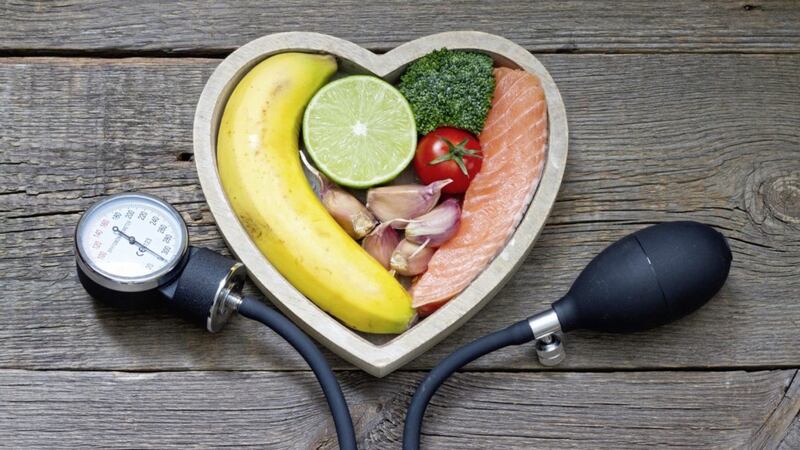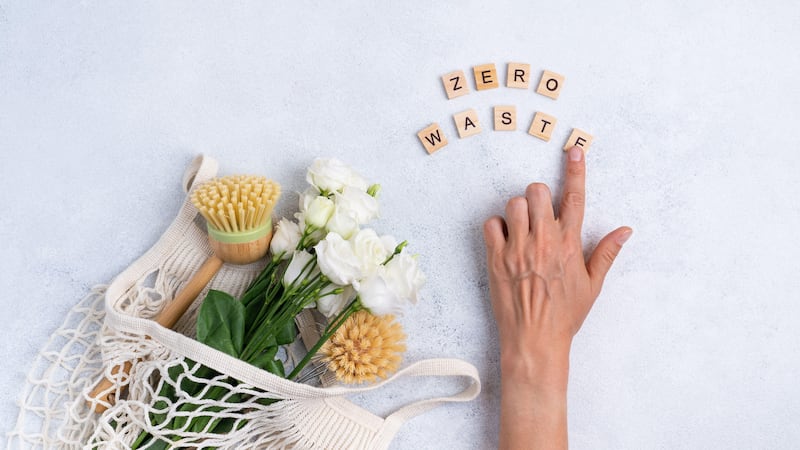IT IS estimated that about one in eight people in Northern Ireland have high blood pressure, although many of us may be symptom-free and don’t even realise it is affecting us. If left untreated, high blood pressure or hypertension is a risk factor for heart attacks and stroke.
So what is high blood pressure?
As a guide:
High blood pressure is more than 140/90mmHg
Ideal blood pressure is between 120/80mmHg and 90/60mmHg
Low blood pressure is 90/60mmHg or below
What can I do if I have high BP?
We know that there are some lifestyle factors that affect our blood pressure – lack of exercise, being a smoker, stress and being overweight are all triggers, so taking steps to address these factors is important. Start with some small changes and gradually build healthy habits into your lifestyle.
What about my diet?
Research shows that there are some nutritional factors that can affect our blood pressure – fish oil, fibre, sodium, potassium, calcium and magnesium are all through to play a role.
The Dash diet (Dietary Approaches to Stop Hypertension) has been developed to incorporate these recommendations and help with high blood pressure and research shows that this diet could also be helpful for cholesterol balance and weight management too.
The Dash diet is low in salt, saturated fat, sugar and red meat. It encourages a high intake of fruit and vegetables, low-fat dairy products, fish, some wholegrains, nuts and seeds.
Here are some simple things you can do help maintain a healthy blood pressure:
:: Reduce salt and foods with hidden salt. It is recommended that we consume no more than 2.5g sodium (that’s 6g salt) a day. To do this, we need to drastically reduce the amount of processed food we eat, not just restrict use of salt at the table. Check your food labels to find out how much salt is in the food you are eating.
Low salt is less than 0.3g per 100g.
Medium salt is 0.3-1.5g per 100g
High salt is more than 1.5g per 100g
Don’t forget that smoked and cured foods like ham, bacon and cheese can contain high levels of salt.
Use herbs and spices to flavour food and switch to sea salt, but use in moderation as it still contains sodium.
:: A high fibre diet has been shown to be beneficial for blood pressure. Good ways to increase your fibre intake are to eat more vegetables, pulses, fruit and wholegrains and avoid white, refined and processed foods.
:: Add garlic to your diet where you can.
:: Increase your intake of foods rich in potassium as this mineral is thought to help reduce blood pressure. Fruit and vegetables, nuts and dairy products are good sources.
:: Calcium is also thought to play an important role in managing our blood pressure, so adding some dairy products, nuts and seeds every day is a good idea.
:: Magnesium is an important mineral for blood pressure that many of us are deficient in. Found in nuts, seeds and green leafy vegetables, a deficiency in this mineral has been linked to hypertension.
:: Studies show that fish oils play a significant role in reducing blood pressure, so aim to eat oily fish like salmon, mackerel and sardines a few times a week. As long as you are not taking medication for blood pressure, it would also be worth considering taking a fish oil supplement, but check with your GP first if you are taking any medication.
:: Reduce your intake of alcohol. Although some studies show a moderate intake of alcohol may be beneficial for blood pressure, the consensus is the less we consume the better.
:: Cut coffee – studies show that coffee, even if it is decaf, can increase blood pressure in some people. Find alternatives like herbal teas and reduce your coffee intake for best results.
vital-nutrition.co.uk
facebook @vitalnutrition1
twitter @vitalnutrition








